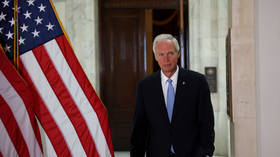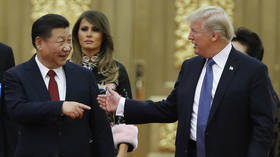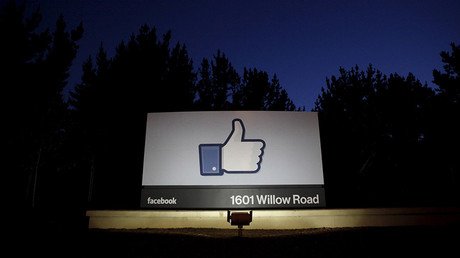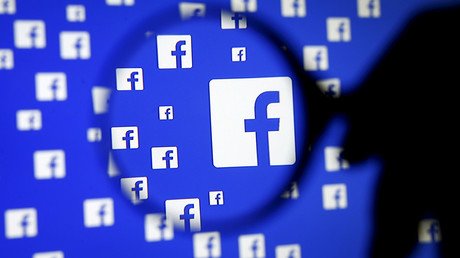Social media bow to pressure and censor dissident voices
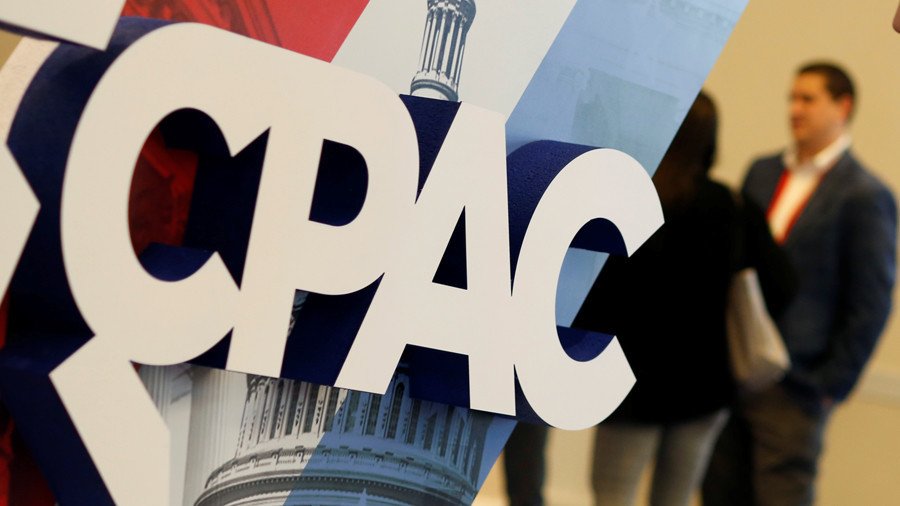
Twitter, YouTube and Facebook, accused of enabling US President Donald Trump’s rise to power through “Russian meddling,” are facing pressure to de-platform heretics. This has raised fears for the safety of free speech in the US.
At the Conservative Political Action Conference (CPAC) this past weekend, media crusader James O’Keefe headlined an hour-long panel on social media censorship, arguing that it targeted mostly conservatives.
“They really make sure you don't see any differing views,” O’Keefe said at the panel.
.@JamesOKeefeIII and Google whistle-blower @JamesADamore discuss censorship of conservatives on social media/Silicon Valley: "They really make sure you don't see any differing views." #CPAC2018pic.twitter.com/fErgugFK85
— Project Veritas (@Project_Veritas) February 26, 2018
Last week, the blogging platform Medium deleted a number of accounts, including those of Mike Cernovich, Jack Posobiec and Laura Loomer, described by The Hill as “prominent far-right figures.” The purge took place after Medium replaced a commitment to free speech in its terms of service in favor of fighting “online hate, abuse, harassment, and disinformation.”
Though Medium would not comment on individual account bans, it is notable that Cernovich’s account was deleted after he was named in a Newsweek article that blamed the “alt-right,” overseas social media bots and “Russians” for the ouster of Senator Al Franken (D-Minnesota) over sexual misconduct. Newsweek retracted the story after criticism that it could not be substantiated.
A number of YouTube creators have complained that the video platform has demonetized basically anything that isn’t deemed “family friendly,” including political dissent. Another crackdown followed the school shooting in Parkland, Florida, after the top-ranking video on the site featured accusations that some of the students were “crisis actors.”
Yet if YouTube simply censored any videos even referring to conspiracy theories, that would surely present a new problem. After all, wouldn’t it also undermine efforts to debunk them?
I find it scary that Youtube is taking down conspiracy videos.The problem is tough. Fake news is really bad but should people have a right to freely express themselves even if they are wrong?What if Youtube decides a news report is a conspiracy but it turns out to be true?
— Tim Pool (@Timcast) February 26, 2018
Conservative critics accuse the social media giants of being run by Democrats. There is certainly evidence pointing in that direction, from the involvement of Alphabet (Google’s parent company) CEO Eric Schmidt with Hillary Clinton’s 2016 campaign and the Obama presidency, to Twitter’s admission it censored the hashtags about WikiLeaks’ publication of revealing emails from Clinton’s campaign chief John Podesta in the run-up to the November 2016 vote. Those emails also revealed the commitment of several Facebook executives to get Clinton elected.
After Clinton lost to Trump, however, the three social media giants found themselves in the crosshairs of Congress. Many Republicans joined the chorus of Democrats accusing the social networks of enabling alleged “Russian” activity.
“You created these platforms... and now they’re being misused,” Senator Dianne Feinstein (D-California) told the executives of Facebook, Google, and Twitter during a hearing in October 2017. “And you have to be the ones who do something about it — or we will.”
So far, “doing something” seems to consist mostly of purging “Russian bots,” as identified by the either the social media companies themselves or an alliance of Democrats and neo-conservatives ousted from power by Trump, and now seeing Russians behind every hashtag.
The people who formed Hamilton68 are DC's worst warmongers & liars. They are long-time disinformation agents. *Bill Kristol* put the group together. They follow only 600 Twitter accounts, secretly designated by them as "pro-Russian." And US media uncritically swallows every claim
— Glenn Greenwald (@ggreenwald) February 23, 2018
Censorious actions also include what activists call “de-platforming” of people singled out for unacceptable or offensive opinions by the ad-hoc online mobs. For example, after the Florida school shooting angry Twitterati have successfully badgered a number of businesses into canceling discounts they previously offered to members of the National Rifle Association (NRA). Amazon also found itself under pressure to drop the “NRA TV” channel from its platform.
Everyone supporting #DumpNRATV is cool with other groups of Americans organizing activism campaigns to remove other channels, right? Because there's no way this impulse to censor and remove controversial programming could be turned against your favorites, right?
— Jim Geraghty (@jimgeraghty) February 24, 2018
In a recent interview, former Google engineer James Damore speculated that social media companies have an atmosphere reminiscent of universities. Such locations have also seen crackdowns on freedom of expression in recent times.
“It was very much like a college campus," Damore told the Washington Examiner. “And they tried to make it like a college campus where you would live at Google essentially, where they have all your food and all the amenities, and once you start living there you aren't able to disconnect, and so you feel like my words were a threat against your family. That was part of the fervor, I think.”
Damore was purged from Mountain View over a memo in which he questioned the company’s practices. The heart of the issue was diversity.
ICYMI, my interview with @JamesADamore, wherein he observes parallels between the culture at Google and the culture on college campuses, reflects on the memo, and discusses his future. https://t.co/u1KZn1dIWH
— Emily Jashinsky (@emilyjashinsky) February 26, 2018
While the social media companies may hope lawmakers would be appeased by an occasional purge of unpopular voices, another danger is headed their way. The legacy media is aiming to recapture its hold on audiences.
On Monday, CNN president Jeff Zucker addressed the Mobile World Congress in Barcelona. His thrust was that government should look into Google and Facebook “monopolies” if journalism is to survive.
“In a Google and Facebook world, monetization of digital and mobile continues to be more difficult than we would have expected or liked,” Zucker said, according to Variety. “I think we need help from the advertising world and from the technology world to find new ways to monetize digital content, otherwise good journalism will go away.”
Tempting as it would be to quip about CNN’s tenuous relationship with “good journalism.” At this time, doing so would be self-defeating as the chances are it would get one quicklybe a short-cut to getting purged from Google, Twitter or Facebook.
The statements, views and opinions expressed in this column are solely those of the author and do not necessarily represent those of RT.






